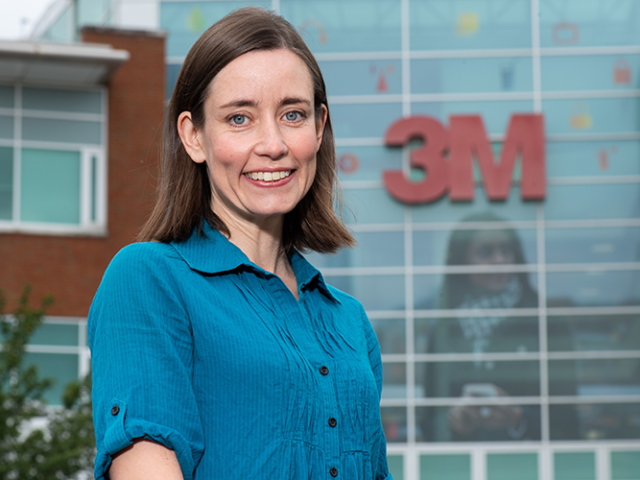Bangor University is a small city situated on the north west coast of Wales. With the Snowdonia national park to the south and island of Anglesey just across the Menai Straight, there are lots of places to explore. Including beaches, forests, mountains, castles, and towns all which can be accessed by local buses and trains.
Bangor also has a large array of sports clubs and societies. They are a great way of exploring the local area from mountain walking to surfing. They can also be an opportunity to find likeminded people who maybe interested in similar hobbies and backgrounds. During the fresher’s week these societies host taster sessions to give an overall feel of the weekly activities. Try as many as you like, the University do not charge for club membership.
Almost all of the University buildings and facilities are located in the city of Bangor. If you are staying in halls of residence in your first year, you will probably stay at either St Mary’s Village or Ffriddoedd. Events such as quizzes and free food are hosted by the campus life team and are once again a great way to meet the people who live around you.
The Electronic Engineering and Computer Science department is located in Dean Street, about a 5-minute walk away from the Main Arts Building. Most of your time would be spent here in lectures which usually take place in the lecture rooms or theatres. In addition to this, every week in the first and second year include compulsory lab sessions, where key practical electronics and physics principles are explored. In the second year an engineering group project can be undertaken.
This is a fun opportunity to experience the different stages of creating a product, from design to purchasing the components and learning how to put it all together. It is also a great way to boost teambuilding skills by delegating tasks to each other and learning new areas that are not covered in the course. For my group project we designed and created a plant monitoring device that can be viewed directly from your phone, via an App.
This Application was built from scratch and provided key details such as light levels, moisture, temperature, and humidity. These values were measured using many sensors that were connected and programmed to an Arduino Uno. If you already enjoy creating projects of your own, drop by the makerspace society. Where like-minded engineering students and enthusiasts share and work on interesting concepts and ideas.
There are a few variations in the different Engineering courses at Bangor. I myself studied Computer Systems Engineering, which compared to Electronic Engineering, replaces some modules such as Microelectronics with Computer Science based modules such as programming. However, the bulk of the modules would be the same throughout the different courses. Some of my favourites included VLSI Design and Control Systems, as you are taught real world applications. For example, during the Control Systems module there are lab-based sessions in Matlab, where transfer functions can be analysed and modified to get a more favourable response.
In the third year, you will undertake a final year project as part of your dissertation. There are a wide variety of choices which vary every year. The topics however, tend to relate to the area of research within the department, which are currently Photonics & Communications, and Energy Environmental and Bio Sensing (EEBG). For my final project I developed a program that can identify insect biomass by using Artificial Intelligence and Image Analysis. The interesting part was when I started, I did not know much about these areas. This encouraged myself to independently source my own material, whilst utilising the resources available within the department.
Overall University can be a challenging and an exciting experience, so below are a few top tips to get the most out of your time and studies.
- It’s okay to forget things, there is a lot to learn throughout a three year course. So don’t be afraid to revisit old modules, as further understanding of these past topics will help with future ones.
- Other students doing other courses may not understand the intensity that maybe involved at times and may dissuade yourself from the work. It is important to remember that this is your course.
- Finding useful information online can sometimes be difficult or take a lot of searching, which can be very frustrating. Nothing really beats the recommended text book for the module. As this usually would have a similar style to the course but can provide that extra bit of understanding. And you do not have to pay for the textbooks, there should be copies in the library. If you are still struggling, ask the lecturer for further information, rephrasing a topic or giving new examples can go a long way. Bangor University has an open door policy between lectures and students and as long as they are free are always willing to help.
- If the course has more than a couple programming modules, and you are new to coding, take extra time programming outside of the modules. This will not only help with the understanding of the language but help get into the mindset of creating your own specific code.
- Make sure you set aside time for breaks when completing work. Investing too much time on an issue can become frustrating and demotivating, consider what you will get out of each piece of work you will do.
- If you can look at the lecture slides the day before the lecture, this can help you highlight what would be the difficult parts and therefore you can focus and prepare for these.
- Do not cut corners, especially in first year. The more you learn then the better off you will be when the work starts to increase in second year. If you do not understand one module by the end, chances are you are not going to understand the module that follows it. Modules would have assignments set, and some include tutorials. Always try your best with these as they usually help when exams roll around.
- It can sometimes feel like there are a lot of exams. Creating revision timetables can help you break up the modules. It is probably best to spend a couple of days on just a single module to help put together all the links in the chain. Breaking them down into a single day could mean it will take longer to understand the main concepts. Also have study sessions with other students on your course, this can help point out areas that have been missed.
- Think about what you are going to do over the summer breaks. Learning about a new topic or skill can be advantageous when looking for employment after University. Also look into Internships. The department of Electronic Engineering and Computer Science sometimes look for student applicants to assist with research projects.
- Do have fun, there are a lot of other things to do at University, besides the course.




